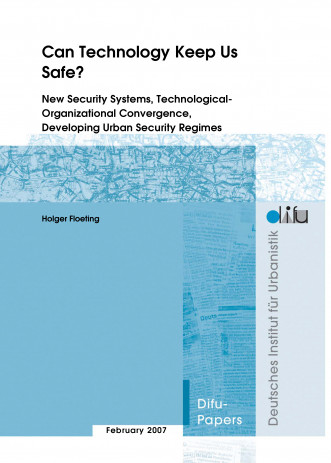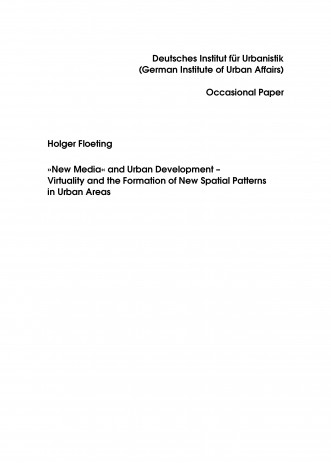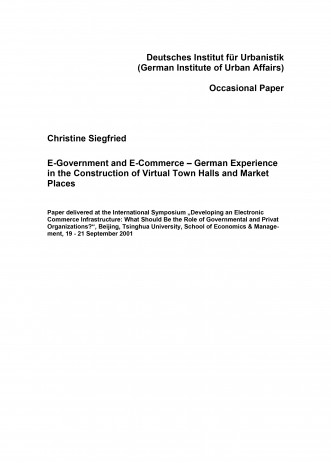Can Technology Keep Us Safe?
New Security Systems, Technological-Organizational Convergence, Developing Urban Security Regimes

Difu Papers, 2007, englisch, 16 p., Deutsches Institut für Urbanistik 2007
Free download
Content
The terrorist attacks in New York, Madrid and London have made central, local authorities and the public acutely aware that urban agglomerations, with their high-rise office blocks, concentrated mixed-use and residential areas and major technological infrastructures, are particularly vulnerable to this type of threat. Although this is not the first time towns and cities have had to face such dangers, the number of terrorist attacks has increased significantly since the 1990s. Real and suspected threats are not confined to catastrophic incidents affecting world metropolises and megalopolises; they also include every-day crime. Security systems using information and communication technology (e.g. video surveillance, biometrics and radio frequency identification) have the potential to avert these dangers, minimize their impact or, at the very least, reinforce crime fighting efforts. However, many are concerned about the Orwellian nature of such technologies and the social exclusion they may cause. Despite a current lack of integrated urban security policies with dedicated security resources, new urban security regimes are developing to meet specific threats. Urban policymakers and councils must assess the potential benefits and risks of ICT-supported security technology impartially and on the basis of hard facts. This Difu paper will contribute to the debate by defining urban security as a public responsibility, describing promising ICT-supported security technologies and technological organizational convergence in an urban setting, and by sketching the future of city life under new security regimes.

